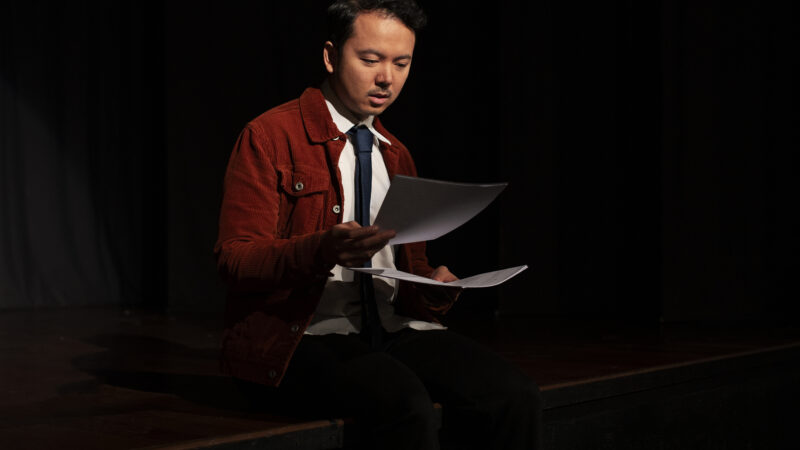How to Memorize Scripts Faster Without Losing Emotion
- Table of Contents
- 1. Introduction
- 2. Effective Strategies for Actors to Overcome Memorization Challenges
- 3. Focus on Understanding, Not Memorizing
- 4. Break the Script Into Beats
- 5. Use Repetition With Action
- 6. Practice Under Pressure
- 7. Connect Emotion First
- 8. Anchor With Triggers
- 9. Layer in Emotion After Words Are Secure
- 10. Test in Real-Life Situations
-
11. Harness the Power of Sleep
12. Keep Stress Out of the Process
13. Final Thoughts
Introduction
Every actor knows the panic of staring at a script, repeating lines over and over, only to blank the moment pressure hits. Memorization can feel like the hardest part of the craft—not because actors lack discipline, but because they’re often taught to “just memorize” instead of truly learning how. The secret isn’t cramming words into your head; it’s building a living connection with the text so that the dialogue flows as naturally as thought itself.

Effective Strategies for Actors to Overcome Memorization
Challenges
Memorizing lines is one of the most important skills an actor must master — yet it’s also one of the most common sources of stress. Many performers lose sleep worrying about forgetting lines, and often they are told simply to “memorize” without being taught how. Traditional tricks like rote repetition, mnemonics, or writing lines out may help temporarily, but they don’t build the deep, contextual memory actors need for authentic performance.
The real key is to connect with the script on a meaningful level, so that memorization becomes a natural extension of the story rather than a mechanical exercise. Below are practical strategies to make line-learning faster, easier, and emotionally truthful.

Step 1: Focus on Understanding, Not Memorizing
Before trying to lock in lines, dive into the script:
- What does my character want?
- What obstacles stand in their way?
- How do they feel about the other characters?
When you connect with the character’s motivation and relationships, the dialogue feels intuitive, not forced.
Exercise: Retell the scene to a friend in your own words. This helps cement the intention before adding back the actual lines.

Step 2: Break the Script Into Beats
Actors talk about “beats” — moments where emotion or intention shifts. Breaking the text into beats makes memorization manageable and keeps your performance authentic.
- Mark beats in the script with a symbol.
- Learn one beat at a time.
- Connect the beats like puzzle pieces.
This ensures your delivery feels responsive rather than robotic.

Step 3: Use Repetition With Action
Passive reading doesn’t work. Instead, engage your body and voice:
- Walk while rehearsing.
- Use gestures as you speak.
- Record and listen back while commuting.
This taps into kinesthetic learning, storing lines in your muscles as well as your memory.

Step 4: Practice Under Pressure
Performing isn’t about perfect recall — it’s about reacting in real time.
- Run lines with a partner.
- Use recordings of cue lines.
- Try “speed runs” (reciting lines faster than usual).
These practices train your body to recall naturally, even under stress.

Step 5: Connect Emotion First
Instead of clinging to words, first focus on intention. For example:
Script line: “You never listen to me!”
Paraphrased intention: “Why don’t you care about what I’m saying?”
Once you understand the emotional core, the actual words flow more naturally.

Step 6: Anchor With Triggers
For tricky sections, use the First & Last Word Method:
- Memorize the first and last word of each line.
- Let your brain fill in the rest.
This technique is especially effective for monologues and speeches.
Step 7: Layer in Emotion After Words Are Secure
Think of line-learning like building a house:
- The foundation = the words.
- The furniture and design = the emotions.
Start neutral until the lines feel effortless, then add emotion. This avoids “forced” acting and keeps the performance genuine.

Step 8: Test in Real-Life Situations
Rehearse lines while cooking, cleaning, or walking. If you can recall lines while distracted, they’ll be second nature in performance.
Step 9: Harness the Power of Sleep
Research shows that sleep consolidates memory. Review your lines before bed and again in the morning. Many actors notice the script feels more natural the next day — as if the brain rehearsed overnight.

Step 10: Keep Stress Out of the Process
Anxiety blocks recall. If you panic about forgetting, your brain tightens up. Take breaks, breathe, and remind yourself: you’re not memorizing words — you’re telling a story.
Final Thoughts
Memorization shouldn’t be about tricks that detach you from the story — it should be about embodying the character so deeply that the words feel inevitable. When actors move beyond rote learning and build contextual, emotional memory, they not only memorize faster but also perform with authenticity and truth.
The goal isn’t just to remember lines. It’s to live them.
Ready to Level Up Your Performance?
Master these warm-ups with personalized coaching. Get weekly acting drills, technique breakdowns, and performance tips delivered to your inbox.
Disclaimer: The information provided is for general informational purposes only and should not be considered professional advice. We do not make any warranties about the accuracy or reliability of the content. Any reliance you place on such information is strictly at your own risk. Please consult a qualified professional before making any decisions. For queries, contact: administrator@abs.media.
